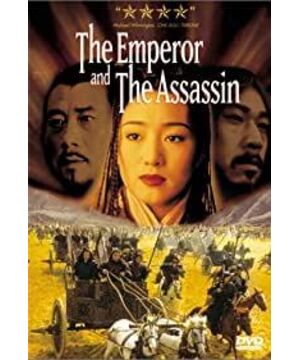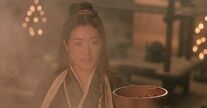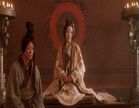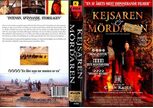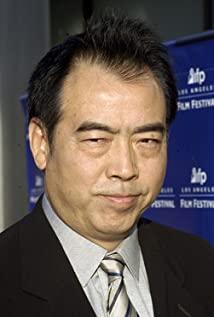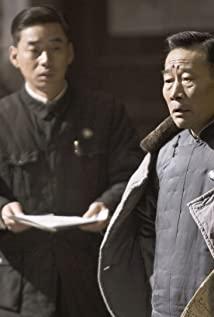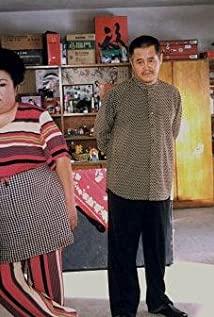Two stars are given to the actors who are serious about acting and have great acting skills, the atmosphere of the scene, and the hardware such as powerful costumes, lens processing and so on.
Let's talk about the plot again, and the discrepancy with the information I found is not very big. Although the information on the Internet is not necessarily true, at least most of it comes from the literature. There may be discrepancies in the records of different documents, but the important events that reflect the character of the character's life will not be very different. And I deciphered the characters from the movie that are very different or even opposite to the historical characters.
The following mainly talk about the difference between the film and the historical data.
Zhao Nv, the explanation given by Wikipedia refers to the women of Zhao State, and the setting of the Handan woman described in the movie that Qin Wangzheng lived and fell in love with Qin Wangzheng is consistent with the setting of A Fang Nv, who is also Zhao Nv. And a series of things that Zhao Nv did in the movie is not available on the Internet. In the movie, Zhao Nv, a strong and brave woman, is vigorously portrayed. From the very beginning, she helped Qin Wangzheng not fight the Yan Kingdom and made Yan surrender. She pretended to win the trust of Prince Dan and instigated a plan to assassinate Ying Zheng. This is equivalent to saying that Ying Zheng has long been Knowing that he is going to be assassinated. However, I think that the matter of sending someone to assassinate Ying Zheng is inherently dangerous, but Nv Zhao is willing to let Ying Zheng take this risk, and Ying Zheng is willing to let the danger come close, I don't think it makes sense. Well, let's just assume that Ying Zheng is very confident and Zhao Nu also believes that he can avoid danger.
Ying Zheng's mother, Zhao Ji, was originally the concubine of Lu Buwei's concubine, and Lu Buwei helped the Yiren who was a hostage in Zhao State to become the king of Qin, and gave Zhao Ji to Yiren as his wife. Ying Zheng was born in Handan, the state of Zhao, and also spent his childhood in Handan. Later, Lu Buwei gave Zhao Ji a "fake eunuch" as a gift to Zhao Ji. Above, the film shows basically the same as the historical description. The difference is that in the film, Zhao Ji and Concubine's desolation is downplayed almost only from the description of Concubine's crimes in Qin Wangzheng's mouth as "the harem" and the two children who appeared. In fact, what are these two people, friends who have checked the information must understand what I mean. Moreover, the Rebellion of the Empress was that Empress stole the royal seals of the King of Qin and the Empress Dowager and mobilized the county soldiers and the palace guards to rebel. It was not a simple act of leading the guests in the movie, but he did not know that Qin Wangzheng had already ambush people around and failed. In the movie, Zhao Ji and Aiyu can see from the dialogue that they are in love, and Aiyu said, "The world thinks that I am covetous for wealth, but don't know that it's just you who want to be my woman and I want to be your man" (probably so ), talk about feelings. I was also stunned to put my two children in the palace instead of sending them out incognito. An out-and-out villain described in the information gave me the feeling of being a fool in the movie. In the movie, it was not explained that Ai Su and Zhao Ji conspired to let their children inherit the throne, but Ying Zheng's words were used to express his suspiciousness, fearing that two children would replace him. Of course, the two children are innocent. One was implicated to death for the crime of their parents, and the other was because their parents loved each other. The father was considered to be greedy for glory and wealth.
Auntie told Ying Zheng about his life experience, and Ying Zheng's reaction was a shock. The words of a concubine can actually make a king who has the ambition to rule the world shake his mood on the spot. When I got to Lu Buwei, I believed it completely. The feeling I got here was that Ying Zheng didn't go through blood and confession with Lu Buwei, but only believed it by word of mouth.
There are different opinions about Ying Zheng's biological father on the Internet. Some people think it is an alien, while others think it is Lu Buwei. In the movie, it was taken as Lu Buwei. Here, Lu Buwei is shown as a father who is willing to sacrifice himself to fulfill his son's dominance. He strives to show his father's love as a mountain, and to cover up the fact that Lu Buwei and Zhao Ji had an affair after the death of a stranger to protect himself because of the growing up of Ying Zheng. To put aside the relationship and use the means to send the concubine to Zhao Ji, it is an understatement to send the door to Zhao Ji. According to the records, Lv Buwei was implicated in the affair of Miao, and Ying Zheng wanted to kill him. The minister sent him to another place because he begged for mercy and thought that he was kind to the previous king. Later, Ying Zheng thought that Lv Buwei had assembled his disciples to rebel and wrote a letter. killed him.
Then Jing Ke, recorded in the "Warring States Policy", was righteous and fearless in the face of danger. In the movie, Jing Ke was initially forced by Prince Dan, and Prince Dan used Zhao Nv to play emotional cards with Jing Ke to talk about repaying his kindness. Because Zhao Nv was held hostage, Jing Ke was shaken. Later, because Qin Wangzheng beat Zhao and buried those children alive, Jing Ke was determined. We all know that Qin Wangzheng was a tyrant, but he was so cruel that he buried his children alive, even young children were not spared. I privately think that if there is such a depraved thing, it will be recorded in the annals of history, adding to the cruelty of Qin Wangzheng. In fact, the record against the Zhao people after the fight against Zhao is that Zhao Gongzijia led hundreds of his clan to flee to Zhao's Dai County. It is a kind of integrity to prefer to die, but what is the purpose of the fictional plot of forcing children to jump into the city and hold them to jump into the city? Does it just show the integrity of Zhao people and the cruelty of the war in a scattered way, or is it to highlight the cruelty of Ying Zheng?
Are the words spoken by Laoshu and Zhao Ji to show how righteous they are and how unrepentant they are, or to show their love and affection in a scattered way, or to show how pitiful they are and how light their sins are in order to show Ying Zheng's cruelty?
Is Lu Buwei sacrificing himself like this to show his father's love in a scattered way, or is it a way of showing Ying Zheng's cruelty, so that even his biological father can be forced to death?
Did the series of things Zhao Nu did scattered to show her bravery, or did it reflect that Ying Zheng's envoy Yan's surrender depended on her own love?
Fan Yuqi's setting here is to know Ying Zheng's life experience, Ying Zheng kills people and kills people, and the way of killing people has not changed. In the movie, Fan Yuqi kept his promise and didn't say it, and used Jing Ke's mouth to stimulate Ying Zheng to show that Ying Zheng had ruined his promise to "not kill Zhao Guo" with Zhao Nv. Moreover, Fan Yuqi in the movie offered to give his head to Jing Ke, while it was recorded in "Warring States Policy" that Jing Ke offered it.
I also want to talk about the word "motherland" here. There are materials available on the Internet that seem to be in the Qing Dynasty.
In the most critical part of "Jing Ke Assassinates the King of Qin", it is recorded that the state of Qin is not allowed to bring swords to court. What I understand in the movie is that Ying Zheng returned the sword to Jing Ke in order to achieve the purpose of being assassinated. In the records, King Qin's sword could not be drawn from the front and he held the sword. In the movie, he directly drew the sword. In the records, the officials fought hand-to-hand because they had no swords, but in the movie, the officials watched and ignored them. In the records, Jing Ke confuses Ying Zheng because he says that he has no intention of killing but just wants to hold Ying Zheng to Prince Dan. Although there have been changes in this part, it is based on the continuity of the film.
Ying Zheng in this movie is pitiful and pathetic. He lost the love of Zhao Nv's mother, lost his father, and he was in danger and no one came out to help him. His reputation can be imagined. He is pitiful because he does not believe in his words, because he is cruel, while others are pitiful because his own problems are all blamed by Ying Zheng. May I ask my friends, do you feel this way?
Such a movie can also be said to be in line with history, rather than smearing the two most important characters - Ying Zheng and Jing Ke, to whitewash Zhao Jilai and Lu Buwei?
Jing Ke assassinated the King of Qin. His journey was that he was bribed to be a killer, killed a family and caused a blind little girl to commit suicide - thinking of her children giving up killing - shaking her heart because her benefactor was held hostage - witnessing the tragic deaths of children would be even worse Many children died tragically, so they determined to assassinate the King of Qin. Instead of protecting their own country, thinking of the country's precariousness, thinking of children, men, women, nobles, soldiers, and common people, all facing the harm caused by the war, they may die and assassinate the King of Qin.
And when the country was in danger, when the little girl was forced to death by him, he never thought that the children of this country would be in danger.
Jing Ke protects the child because he sees the fact that Ying Zheng killed the child because he was afraid that he or his child would be seized from power or be in danger in the future, because he suspected, um, this treatment...
And I don't understand why Ying Zheng felt that his parents were bullied or humiliated in Zhao country and wanted to take revenge? I don't know if I missed something, but I saw him happily telling his mother about the hatred his mother had for him when he was a child.
I think that the film adaptation of history should be based on respect for history, the content can be innovative, and the distinctive characteristics of the characters should be displayed. For example, Qin Shihuang had lofty ambitions, and Jing Ke's heroic spirit. Ying Zheng here has become a fickle, irritable, and manic villain. First of all, Jing Ke was bribed and killed the whole family of the little girl. At this point, Jing Ke's personality is far from his historical counterpart. Later, he never stabbed the King of Qin until he was stabbed, and he had to be stimulated and awakened by his conscience. However, the title "Jing Ke Assassinating the King of Qin" clearly portrays a courageous and righteous woman, which makes the two men in the name bleak, not as good as one woman.
So what is the theme of this film?
View more about The Emperor and the Assassin reviews


